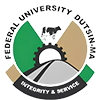MULTI-DIMENSIONAL POVERTY AND THE STATE OF HUMAN INSECURITY IN NIGERIA: A COMPARATIVE ANALYSIS
Keywords:
Comparative analysis, Socio-economic inequality , Poverty-human insecurity nexus, Multi-dimensional povertyAbstract
Nigeria, often referred to as the "Giant of Africa," is the continent's most populous country and
is endowed with vast natural resources, including oil. Despite its wealth, the nation faces
profound developmental challenges, with 37% of its population living below the poverty line.
The 2022 Multidimensional Poverty Index (MPI) assessed four key indicators; health,
education, work, and shocks, and living standards-revealing that 63% of Nigerians are
multidimensionally poor. This paper adopts a qualitative methodology, utilizing comparative
data analysis to explore the relationship between multidimensional poverty and human
insecurity. Through thematic analysis, content review, and comparative analytical frameworks,
the study examines the intricate interconnections between these two phenomena. The findings
indicate that multidimensional poverty is disproportionately higher in the northern regions of
Nigeria compared to the southern regions. This disparity exacerbates inequalities, limiting
access to essential resources such as income, healthcare, education, and adequate living
conditions. Consequently, these deprivations contribute to rising criminal activities, including
armed robbery, terrorism, kidnapping, and intra and inter- communal conflicts. Additionally,
discriminatory practices within the security apparatus further aggravate human insecurity
across the country. The paper concludes by recommending the strengthening of institutional
frameworks through collaborations between the government, private sector, and civil society.
Key suggestions include empowering communities by providing skills for improved livelihoods,
expanding access to financial services, investing in infrastructure and road access, and
enhancing community policing and alternative dispute resolution mechanisms to mitigate
conflicts.






